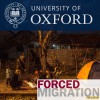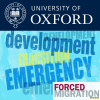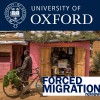|
7 |
|
FMR 61 - ‘Over-researched’ and ‘under-researched’ refugees |
A number of ethical issues emerge from working with ‘over-researched’ and ‘under-researched’ refugee groups. |
Naohiko Omata |
20 Jun 2019 |
|
6 |
|
FMR 58 - Refugees’ engagement with host economies in Uganda |
Multi-sited fieldwork in Uganda allows for an exploration of the complex patterns of engagement between refugees’ economic activities and local economies, in urban, emergency and protracted settings. |
Naohiko Omata |
10 Jul 2018 |
|
5 |
|
FMR 52 - Forgotten people: former Liberian refugees in Ghana |
The viability of the ECOWAS integration scheme implemented as a solution for those Liberians who continued to stay in Ghana is seen to be limited. |
Naohiko Omata |
15 Aug 2016 |
|
4 |
Creative Commons |
HIP2015, Session: Understanding Humanitarian Innovation In Resettlement Contexts |
Parallel session: Understanding Humanitarian Innovation in Resettlement Contexts, 18 July 2015, 11:0--12:30, 2nd Panel Room. |
Gavin Ackerly, Faith Nibbs, Carrie Perkins, Naohiko Omata |
12 Jul 2016 |
|
3 |
|
FMR 51 General - Economic reintegration of returnees in Liberia |
Since the early 2000s, the United Nations Industrial Development Organization has been implementing economic recovery programmes for returnees in certain post-conflict countries. |
Naohiko Omata, Noriko Takahashi |
15 Dec 2015 |
|
2 |
Creative Commons |
FMR 38 Online connection for remittances |
nternet cafés in refugee camps allow refugees to maintain and create networks for overseas remittances. For many displaced people, maintaining these ties is vital. |
Naohiko Omata |
16 Apr 2013 |
|
1 |
Creative Commons |
Humanitarian Innovation Project: launch event |
Special seminar by Dr Alexander Betts, Louise Bloom and Dr Naohiko Omata (University College Dublin) recorded on 15 November 2012 at the Oxford Department of International Development, University of Oxford. |
Alexander Betts, Louise Bloom, Naohiko Omata |
22 Nov 2012 |






